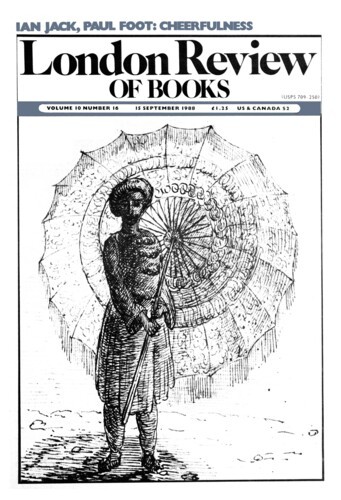Raymond Carver died on 2 August. He talks here to Kasia Boddy about his stories and about his volume of selected poems, ‘In a Marine Light’, published last year
Raymond Carver and Kasia Boddy, 15 September 1988
When I came to the writing of these poems I hadn’t written any for about two years. I’d been writing stories, and I didn’t know if I’d ever write any more poems. I felt writing poetry might have passed out of my life. I lamented that, but it didn’t seem as if there was anything I could consciously do about it. Then I went from Syracuse, New York out to Washington State, with the intention of writing fiction. In the house in Washington, after I had sat still for about a week, not writing at all, I wrote a poem one night. And the next morning I got up and wrote another poem, and before the day was over I had three poems. And I kept writing like this for, I think, 65 days. And I had a book – a full book. I had about a hundred and twenty poems – more than enough for a book. I quit writing then and went with Tess on a trip to South America. Then about three months later, back home again, I started writing poems once more. I wrote the rest of the poems that make up the book. In the space of about eighteen months – it was an extraordinary time – I wrote two hundred and fifty to three hundred poems. I’ve never had a time quite like it in my life. When I was writing these poems I was entirely happy. I could have died then, and I would have died happy. Then, for whatever reason, I stopped writing poems and went back to writing stories, and it is likely I have enough stories now for a new book. But I’ve started writing poems again recently! It’s a good time in my life right now. I’m writing stories, and I’m writing poems. When I began writing stories again, all the poems that are in this book seemed like nothing less than a great gift to me. It is a mystery to me now where they came from. But I began as a poet. My first publication was a poem. So I suppose on my tombstone I’d be very pleased if they put ‘poet gad short-story writer – and occasional essayist’. In that order.’

